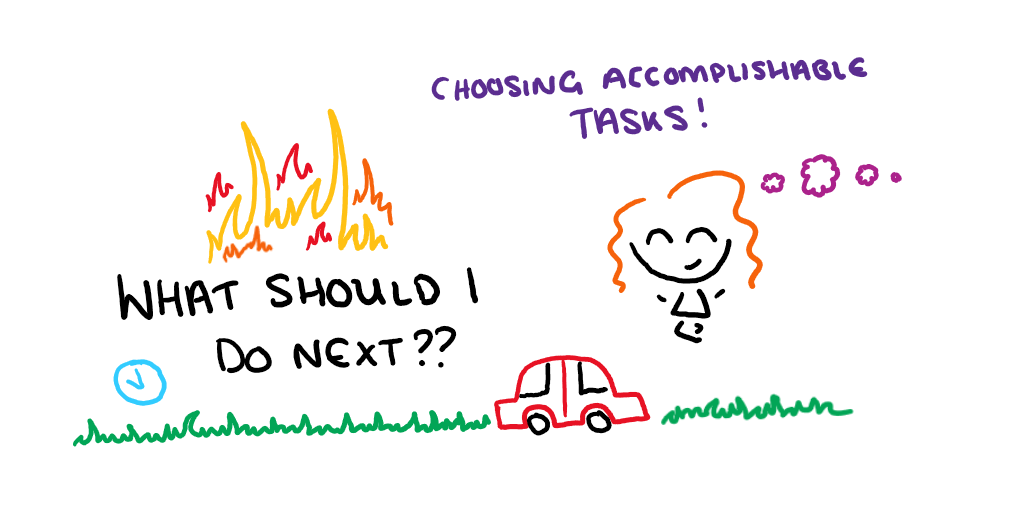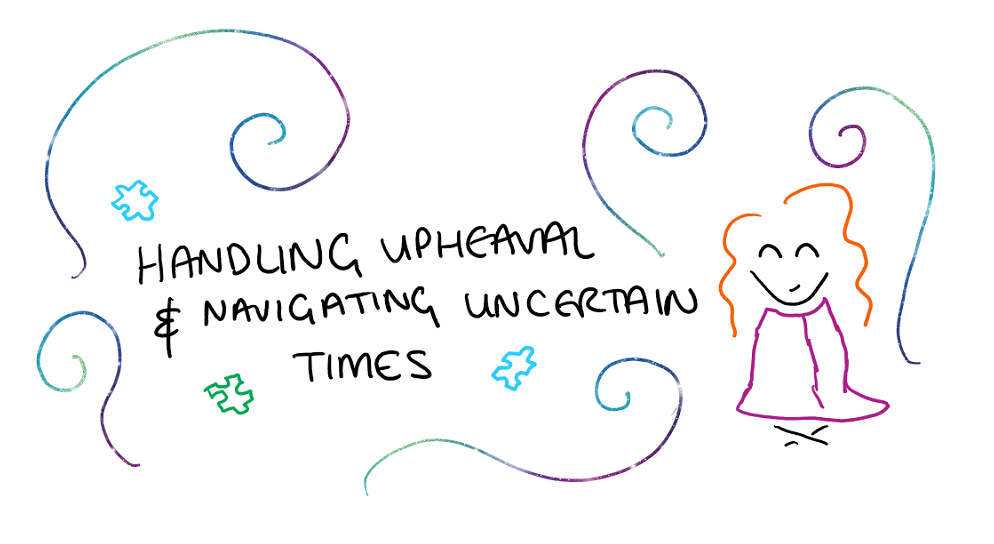Mental health and managing the challenges of remote working
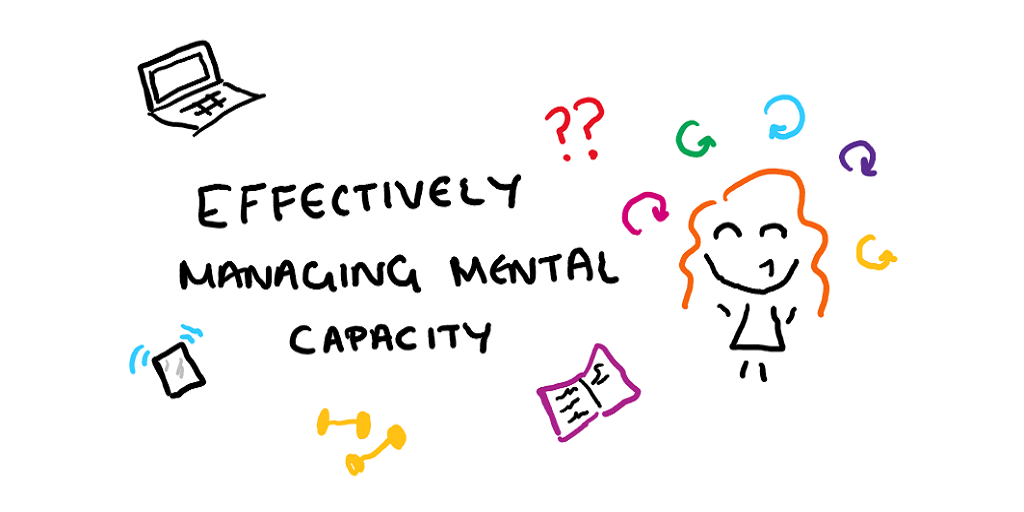
(If videos are more your thing, here's one of me talking through some of these tips!)
Most people that know me will be aware of this, but I haven't spoken about it publicly before so to get this out the way: I have been struggling with depression and anxiety now for around four and a half years. It's something which at points has had a huge impact on both my working and personal life, and I've made the decision that I want to share my experience in order to further the ongoing and important conversation around mental health in the workplace and also maybe, perhaps, help someone.
A bit about (my experience of) anxiety
For those who have never experienced it, anxiety can be something which is hard to comprehend. I remember someone at university stating that he just "didn't get the whole anxiety thing", and I don't think that it was obtusity on his part. No-one can be expected to fully understand something that they've never experienced.
But in short, anxiety can be debilitating. It can cause you to disassociate in a way which renders concentration on anything impossible. It can mean you feel you have to stick to places where there is somewhere to go should you start to panic. (The thought of having a panic attack outside of these spaces is also then anxiety-inducing which really makes the whole situation much worse.) It can make the most trivially simple conversations or tasks seem completely insurmountable. It can mean that working, and dealing with the stress that often entails, whilst also managing this anxiety is extremely overwhelming.
I have been extremely lucky to start my career at endjin, where the support and understanding is more than I could have hoped for. But an important aspect about working here is that we are a fully remote company, and this has both huge benefits but also challenges from a mental health perspective.
Working remotely
Remote working has many benefits, especially around managing your personal and professional life. It gives you the freedom to do things (go to the gym at lunch, pop to the supermarket while it's empty, drop the children at school) that can be hard to manage from a regular office. It can also massively reduce the time spent commuting, freeing up huge portions of the week. It allows flexibility in how and where you work, meaning that you can do things which would never be possible without.
However, there are also challenges which are specific to remote working. I work out of a co-working space in Manchester (more on that later), but almost everyone that I've spoken to there has the same story. "Well I worked from home for a few months, but I went a bit stir crazy so here I am!". And my experience was no different. Which brings us to the first challenge…
1. Isolation
I think one of the biggest challenges with remote working is the isolation. When you work from home you can often go hours or even days without speaking to another person. This isn't the case when working from an office – where if anything the opposite is true; it can be difficult to find some peace and quiet!
Now personally I'm an introvert and struggle with extended human interaction. But even for the most introverted of us, long spells without any human contact at all can be difficult. I found that, in spending too much time on my own, disassociation was far more common. It is much harder to feel connected to the outside world when you don't see anything but the inside of your flat for days at a time.
I have ended up with a couple of techniques to manage this:
Going outside
This sounds incredibly cliché and I would like to make clear that I'm not in any way advocating the attitude that anyone who is struggling with mental health should just "go for a walk". The problem with "solutions" like this is that they ignore the fact that often "just going for a walk" is not as easy as it sounds.
But it is definitely true that going outside on my lunch breaks in general makes it less likely that I will reach that point where going outside seems like one of those insurmountable tasks. It helps in feeling connected to the world and in breaking the start of spiralling thought patterns.
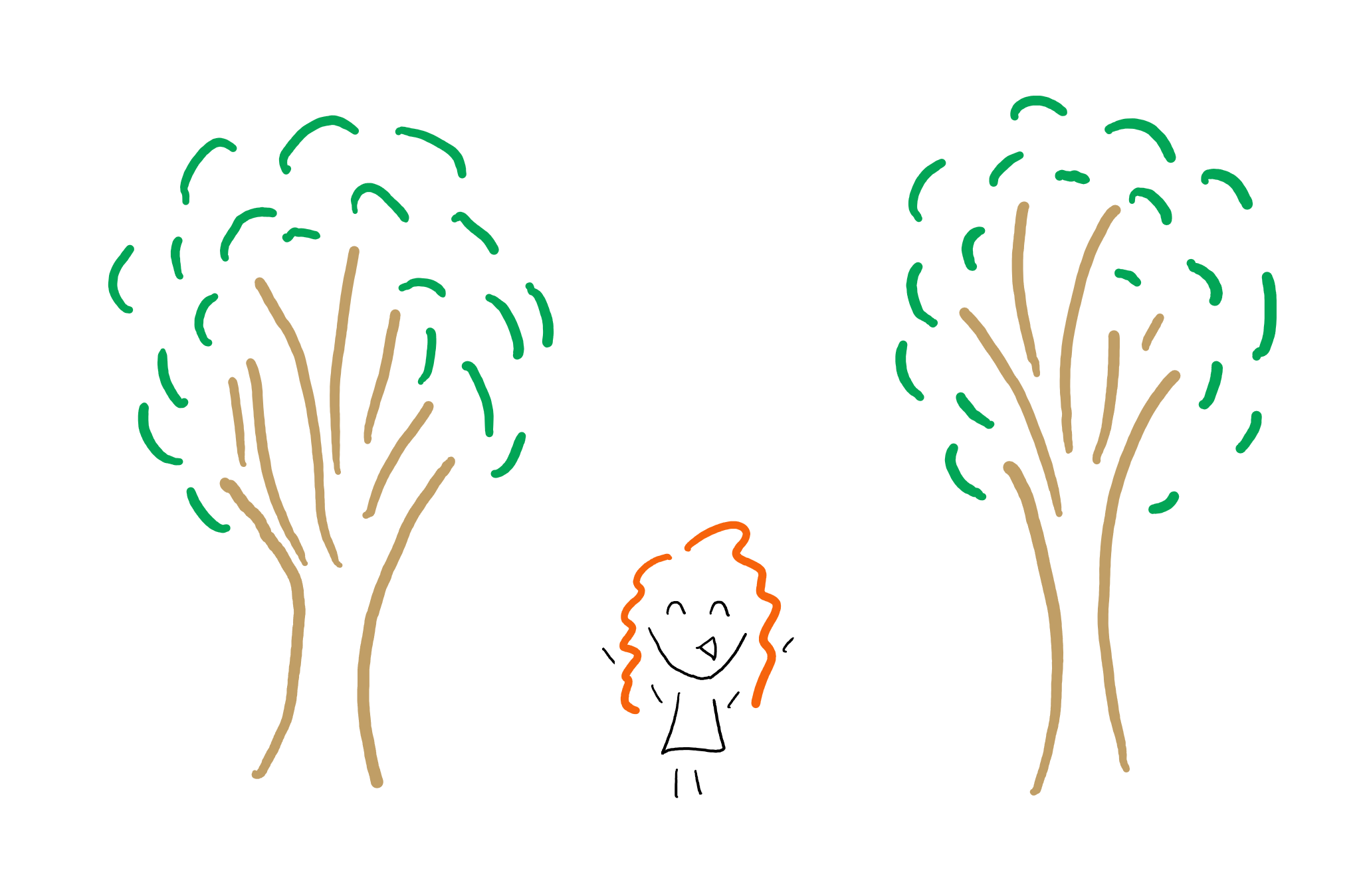
Co-working
However, the main thing that I've done to manage this aspect of remote working is to regularly work from a shared office. This was made possible by the fact that endjin have made big changes to their business model in order to support remote working, and for that I am exceedingly grateful. I find that having my own desk and own space at the office is a big comfort, but if a co-working space isn't something that's accessible, working from cafes brings a lot of the same benefits.
Just the option to go somewhere where there are more sounds and people makes an immeasurable difference to my mental state.
2. When things go wrong
Another thing, which I think is less often talked about, is that when working remotely it can be extremely stressful when things start to go wrong. If you are surrounded by people in an office, it is easy to gauge whether a bug you find is catastrophic, or a small annoyance which is easily dealt with. When working remotely it can be easy to convince yourself that any small fault is the end of the world (and I think it's fairly clear how being highly anxious would affect this).
The key to managing this is really around communication. The best thing you can possibly do to alleviate this anxiety is to speak to someone, because in all likelihood it's nowhere near as bad as you're imagining. So, I think that from a remote-employers perspective it is important to create a culture where "just jumping on a quick call" is commonplace. I say this because I think that having these conversations over messenger can actually exacerbate the situation as the nuances of the interaction are easily lost or misconstrued.
3. Communication and relationships
Which brings us on to… communication!
When your team is all spread out over a wide distance, it can feel much harder to build strong and open relationships with the people you work with. At endjin we have regular meet-ups which are a great opportunity to speak to people face-to-face. I think that provisioning for this is a crucial part of any remote company as without this it is easy to feel disconnected from those you work with.

Building these relationships is critical in feeling like you can be honest about yourself in the workplace. Feeling like you are able to share when you are struggling is one of the most important things when trying to manage mental health. I am a strong believer that talking about these issues is the single most important thing you can do when you are struggling. But alongside this, spending a large portion of your time trying to conceal aspects of how you are is exhausting. This extra mental strain not only means that you have less capacity for effective work, but it can also make the problem a lot worse ("I'm anxious that I might seem too anxious???").
I know that speaking to employers about mental health is an extremely difficult thing to do. And I am also aware that I'm very fortunate to work somewhere I feel comfortable in doing so. But my hope in talking about this openly is that it might start those conversations. I'm sure that the vast majority of employers want those who work for them to succeed. The thing I want to highlight is that making people feel like work is a safe place in which to discuss these things can help people to be both far more effective and generally a lot happier at work.
So, the takeaways here are:
On a personal level, building relationships and trust with the people you work with is incredibly important. When you work remotely this can mean going out of your way to start conversations with people, be that over messenger, calling, or going to visit. But this effective communication is crucial to feeling like you don't have to "leave parts of yourself at the office door".
And as employers I think it's important to promote a culture of open communication and honesty. Make it clear that you have a policy of acceptance and support, both of mental health issues and in general. This creates an atmosphere where employees are far more likely to communicate the things they need in order to be able to do their jobs more effectively.
4. Taking time off
And one of the ways this communication is vital is in the case where you actually do need time off work.
I have talked about the ways in which anxiety can be debilitating. A good friend said to me not long ago that "if you had a physical condition which meant that you didn't know where you were you would not be expected to go to work". The stigma around mental health means that is often seen as something you can just "overcome" or "power through". But the truth is this is often just not the case. This often means that people who are struggling will lie about the reason they are taking time off work. This goes back to the point that if people are spending a lot of time pretending to be okay they are hardly going to be able to work effectively.
With remote working this effect can be hugely intensified. It is easy to get into the mindset when you work remotely that you could "just do a bit of work". It is extremely difficult to make the decision that you can't even lie in bed and open your laptop. This is true for all kinds of illness. But with mental health, because there is already the underlying idea that it isn't a "real" reason to be off work, it can feel much easier to just "work through it".
I cannot stress enough the importance of taking time off when you need it. Continuing to try and work when you are not fit to do so can be incredibly damaging. If you are in a state where you cannot effectively achieve anything but continue trying to do so it causes extra mental strain and stress which can easily lead to symptoms getting far worse.
I recently needed to take some time off work in order to manage my mental state. Again, I want to appreciate how supportive endjin were through out this. But the fact is that companies are required by law to give you time off when you are unwell, and mental illness is an illness just like any other. You are entitled to take time off to get better, and long term both you and your company will be better off when you do. The concept of a "mental health day" is becoming a lot more common, and I think that's incredibly important in letting people know that it is okay not to be okay. But I hope that long term, we can reach a point where this doesn't need to be differentiated from any other time which people need to take off in order to stay healthy.
The benefits
I've said a lot about the challenges of remote working, I would like now to focus on the benefits.
1. A safe space
I mentioned before that needing a safe space is one of the things which can make anxiety difficult to manage. So, the option to be able to work from home can be a huge relief. It means that on days where perhaps the idea of going into an office full of people seems completely impossible, there is an alternative.
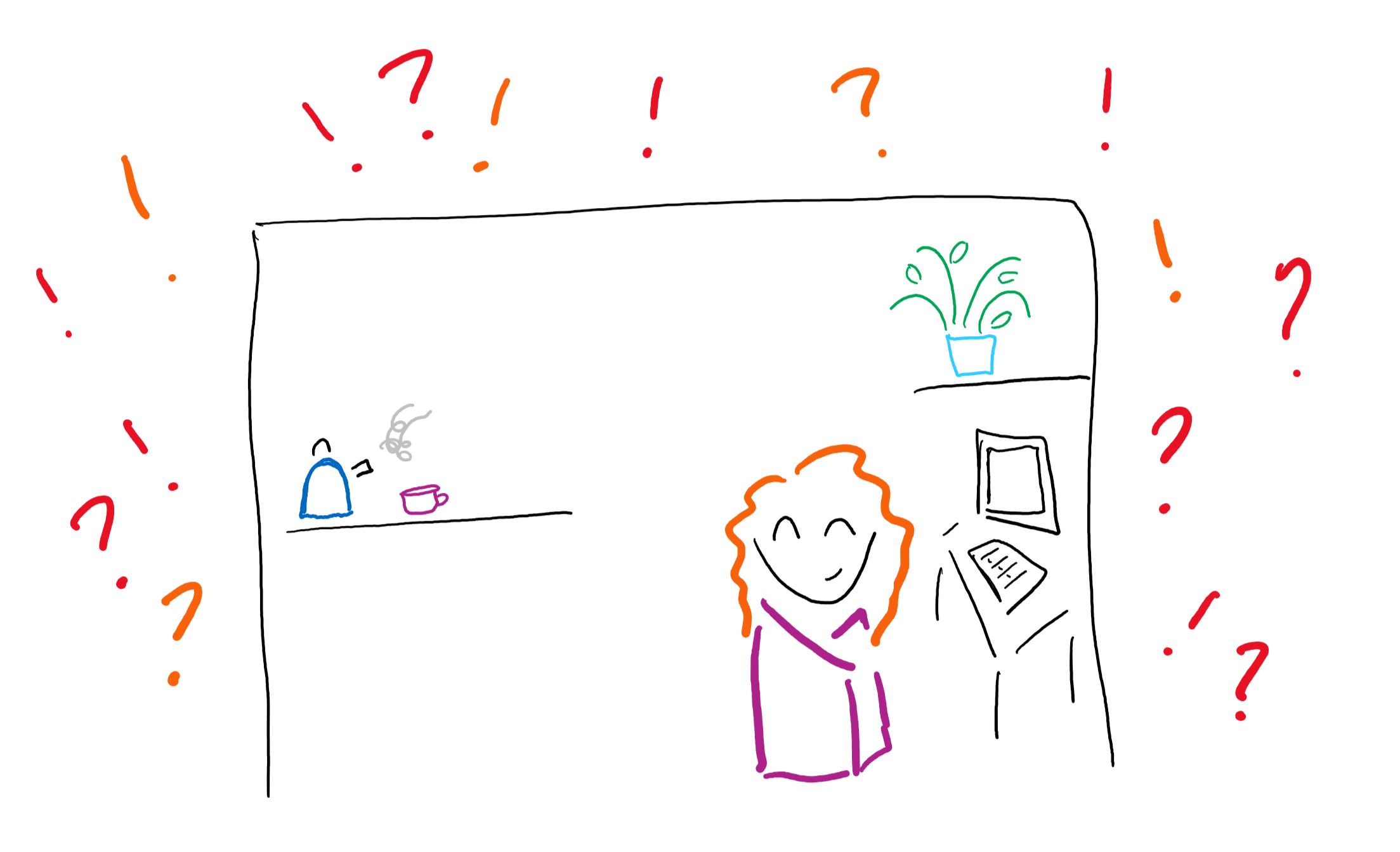
Here there is a balance. Being able to work from somewhere that you feel comfortable and secure is an incredible opportunity but as I've already mentioned a change of scene can be necessary in order to reset your thought patterns. Sometimes I get this balance wrong (usually when it's pouring with rain and the cycle in seems hugely uninviting…), but I have found that the flexibility to change my environment on a day-to-day basis is incredibly valuable in working effectively.
2. Freedom
When remote working, it doesn't matter where you work from. So long as there is an internet connection and a kettle, the world is your oyster.
Personally, one of the things which helps with my mental state is hiking. There is not much which is comparable to the mental boost I get when I reach the top of a mountain (or large hill is probably more accurate here in the UK). However, in general this can be difficult to fit in and around working full time. However, last September I spent a few days working from the Lake District (shockingly actually had better internet connection there than I do sometimes in my flat in Manchester…). This allowed me to continue to work productively, but when I finished for the day I could walk straight out of the front door and up into the hills. This is something which never would have been possible if I didn't have the flexibility afforded to me by remote working.
In far less extreme examples, it means that you can walk the dog while it's still light. It means that you can spend more time with family and friends and not sat on a busy train or fighting your way through throngs of people (I'm looking at you London…). All of these things can have a huge impact on your mental health and wellbeing.
3. Control
I think that the overriding point here is that remote work gives you control of where and how you work. This can just mean that practical parts of your life are made easier (actually being able to visit the post office when it's open), or it can mean that you are able to work without an overriding fear of something triggering a panic attack in a situation you can't control.
The power to be able to control and change your environment as and when you need it I think is a huge relief and unrivalled asset in being able to work effectively whilst also taking care of your mental wellbeing.
In summary
I think that overall remote working is a huge opportunity. Whether or not you are struggling, the ability to have so much control over your working environment is an extremely powerful tool. But this type of working comes with its own challenges, and managing those challenges is an important part of the technology industry's transition towards more flexible working. These challenges are ones that need to be addressed both on a personal level, and by companies which are looking to move towards this kind of flexible working.
My hope in sharing my thoughts and experiences is that it will enable others to do the same. I can't claim to have a complete knowledge or understanding of the challenges and solutions, I don't think any of us can! But I hope that by sharing experience and sharing knowledge we can all help each other to reach a place of openness and honesty, both in the workplace and in our personal lives, and that this in turn will lead away from the stigma and shame which is often associated with mental illness.


